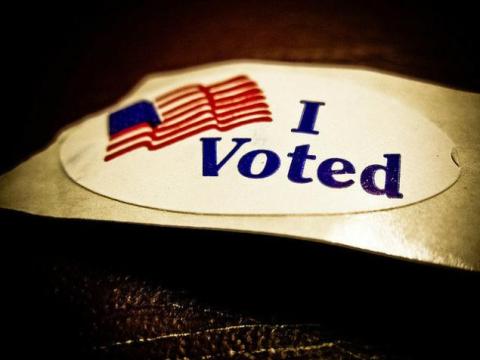The Florida Constitution Revision Commission convenes every 20 years. It consists of 36 appointees plus the state attorney general. The governor appoints 15, the Florida Senate president appoints nine, the speaker of the Florida House of Representatives appoints nine, and the chief justice of the Florida Supreme Court appoints three.
The commission, whose purpose it is to consider initiatives to go on the 2018 ballot, has begun holding public hearings. The first was in Orlando, followed by Miami, Boca Raton, and Tallahassee. They will continue across the state throughout the year and into 2018. The hearings give citizens an opportunity to provide direct input to the commission on various issues, and as the new head of Florida Fair and Open Primaries, I have been working feverishly to have people turn out in support of a top-two open primary system for Florida.
READ MORE: Nonpartisan Elections in Florida? One Coalition is Trying to Make It Happen
According to the Florida Division of Election’s website, over 3.1 million voters are registered with no party affiliation. That’s over a quarter of the electorate, and we’re barred from voting in primary elections. Due to past gerrymandering, safe districts still exist for both parties, and the majority of races are actually determined in the primary; not the general election.
Language adopted 20 years ago by the previous commission, and approved by voters, allows everyone to vote in a primary when the winner of a primary will be unopposed in a general election. However, the law is being circumvented by parties inserting bogus write-in candidates. In so doing, they close the primary to all others. While we support closing the write-in loophole, we take it a step further.
We want all candidates, regardless of party affiliation, to appear on a single primary ballot with all voters voting for their preferred candidates. The top two vote-getters would then advance to the general election. We not only believe this is necessary to give all voters equal access, we believe it will force candidates to appeal to a broader base. This in turn will result in less partisanship and better policy.
Furthermore, primary elections are publicly funded (tax dollars), while political parties claim to be private associations. There are no requirements for joining a party (applications, dues, loyalty oaths, etc.) other than checking a box on a voter registration form. If that is the only requirement for becoming a “member” of a political party, one must ask why that is a requirement to participate?
In a March 2017 poll, 92% of Florida voters agreed their elected officials should put the interests of Florida voters ahead of the interests of their own political party. 93% of Florida voters agreed their elected leaders should bring opposing interests together to create good policies for the state and 87% of voters supported electoral changes that expand democracy in Florida. 74% of Floridians want independent voters included in primary elections, and 73% of Floridians — including majorities of Republican, Democratic, and independent voters — want the Constitution Revision Commission to put an open primaries initiative before the voters.
You can read the full report here.
ALSO READ: Florida Voters Tend to Agree: Taxpayer-Funded Primaries Should Serve ALL Voters
As more and more people register to vote without a party affiliation, the cries for open primaries will only grow louder. Will you add your voice?
To learn more about a top two open primary, please visit www.FloridaFairAndOpenPrimaries.org. Please fill out the contact form if you would like more information about our organization and what you can do to advance the cause of independent voting rights in Florida.
You can also find information about the Florida Constitution Revision Commission at www.flcrc.gov.
